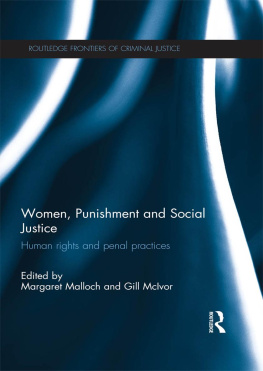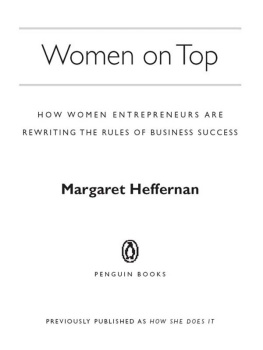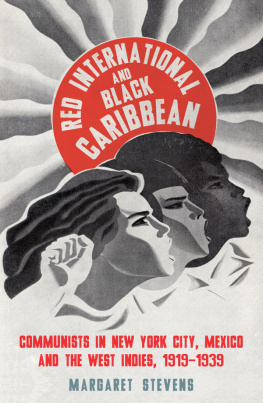Edited by
Margaret C. Simms and
Julianne M. Malveaux
First published 1986 by Transaction Publishers
Published 2017 by Routledge
2 Park Square, Milton Park, Abingdon, Oxon OX14 4RN,
711 Third Avenue, New York, NY 10017, USA
Routledge is an imprint of the Taylor & Francis Group, an informa business
Copyright 1986 by Taylor & Francis
All rights reserved. No part of this book may be reprinted or reproduced or utilised in any form or by any electronic, mechanical, or other means, now known or hereafter invented, including photocopying and recording, or in any information storage or retrieval system, without permission in writing from the publishers.
Notice:
Product or corporate names may be trademarks or registered trademarks, and are used only for identification and explanation without intent to infringe.
ISBN 13: 978-0-88738-662-6 (pbk)
Contents
Margaret C. Simms |
Employment Issues |
Julianne Malveaux |
Barbara A.R Jones |
Karen Fulbright |
Julianne Malveaux |
Cecilia A. Conrad |
Charles L. Betsey |
Education and Training |
Margaret C. Simms |
Margaret B. Wilkerson |
Lynn C. Burbridge |
Harriett Harper |
John M. Jeffries |
Single-Parent Families |
Margaret C. Simms |
Margaret C. Simms |
Harriette Pipes McAdoo |
William A. Darity Jr 167 and Samuel L. Myers, Jr. |
Health Issues |
Julianne Malveaux |
Alvin E. Headen, Jr. 183 and Sandra W. Headen |
Fred McKinney |
Ron Law |
Beryl B. Jackson |
Bernadette Chachere |
Development Issues |
Stephanie Y. Wilson |
Willene A. Johnson |
Beverly J. Mason |
Julianne Malveaux |
Gloria L. Scott |
Research and Policy Implications |
Julianne Malveaux |
Phyllis A. Wallace |
Julianne Malveaux and Margaret C. Simms |
This publication was developed as a written record of a symposium on the economic status of black women that was co-sponsored by The Review of Black Political Economy and the Congressional Black Caucus Foundation. We focused on the problems and needs of black women because they have not been given adequate attention. As Julianne Malveaux indicates in her introduction to the Research and Policy Implications section at the end of this volume, black women have too often slipped through the cracks when the focus is on blacks (mostly male) or women (mostly white). Our intention was not to ignore black men or black children nor was it to create artificial divisions within the black community. Because black women have made such a valuable economic contribution to the black family and the black community as a whole, it is impossible to propose solutions to the problems affecting the community without examining the status of its women.
The term economic status has been broadly defined. It includes employmentlabor force participation, occupational status, and earningsand there is a section on education and training because they provide black women with access to better employment opportunities. Because of the prevalence of single parenting among black women, their position is given separate attention. We also examined health conditions because of the impact that health problems have on household income and budgets, as well as the effect of the mother's health on the well-being of her children. Many of the problems of black women are not unique to the United States. Since our symposium was held at the end of the United Nations Decade for Women, there is also a section on the role of black women in two developing countries.
Several of the articles included in this volume present findings from doctoral dissertations and this represents their first distribution to a wider audience. Other essays include data recently made available by government sources or from research studies. However, it is clear that much remains to be done in terms of research and in terms of policy formulation and implementation. The legislative agenda that was developed at the end of the symposium was distributed at a meeting of Congresswoman Cardiss Collins braintrust on black women. It is our hope that readers of this volume will have the same interest in policy action as the individuals who were present at that time.
A tremendous amount of time and effort went into the symposium and the completion of this publication. I would like to thank staff members at the Congressional Black Caucus Foundation, especially Sherille Ismail and Frank Morris, for handling all the logistics for the symposium. The cooperation of all authors and discussants was essential for getting this volume published in a short period of time. We appreciate the support of the Rockefeller Foundation, which provided a grant to cover symposium costs, and would like to thank the Ford Foundation for their support in the publication of this volume. A special thanks goes to my co-editor Julianne Malveaux. Her hard work was vital to putting this publication together.
Margaret C. Simms
Employment Issues
JulianneMalveaux
Work has been so major a part of black women's legacy that it is frequently jested that black women are born with a broom in hand. The jest is light humor to cover up the slave legacy and the Reconstruction rigors that made work a permanent part of black women's experience.
Soujourner Truth's asked, Ain't I A Woman? at a women's conference in Akron, Ohio, in 1851. Her words detailed what black women meant by work in slavery:
I ploughed and planted and gathered into barns and no man could head me! And ain't I a woman? I could work as much and eat as much as a manwhen I could get itand bear the lash as well! And ain't I a woman? I have bourne thirteen children and seen them all sold off to slavery, and when I cried out with my mother's grief, none but Jesus heard me! And ain't I a woman?
From Sojourner Truth's day to this, the burden of black women has been a heavy one. Black girls were denied their childhoods; in 1890, 20% of them worked. In the late nineteenth century, black women mostly worked in private households and in agriculture, and Cecelia Conrad's review of Paula Giddings When and Where I Enter and Jacqueline Jones















